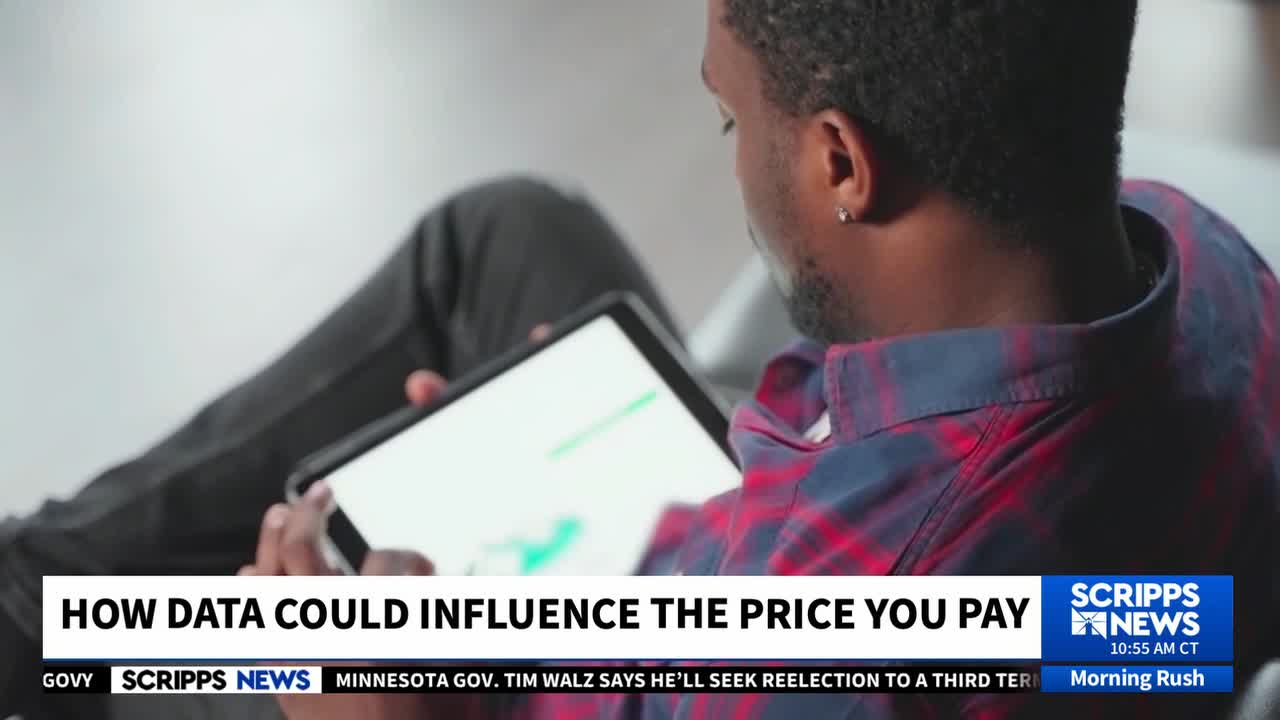In today's digital economy, the price people see for a product might not be the price their neighbor sees — even if you're buying at the same time.
Experts call it "personalized pricing," a growing practice where companies use massive amounts of consumer data to determine the exact amount you might be willing to pay.
Economist and associate professor at Brandeis University Ben Shiller explains it simply: "Personalized pricing is when companies use a lot more data to basically charge just about everyone their own price."
This approach uses advanced algorithms and data analytics to assess factors like demographics, browsing history, past purchases, and even how you move your mouse on a website. The goal is to predict the highest price you'll pay without abandoning your purchase.
IN CASE YOU MISSED IT | Apple’s iPhone 17 pre-orders are live, but should you upgrade?
"They're trying to maximize how much they can charge you for something without sort of losing you as a customer. But it's highly targeted and sort of inconsistent," said Ben Winters, director of AI and Privacy at the Consumer Federation of America.
A Federal Trade Commission study released in January found that personalized pricing, sometimes called surveillance pricing, can rely on a wide range of personal data, from your physical location to the items you leave in your virtual shopping cart.
The FTC reported that companies hired to manage price-setting algorithms work across hundreds of brands, from grocery stores to clothing retailers. These systems can raise or lower prices based on who's shopping.
"It's conceivable that, on average, consumers are better off. There's theory that suggests it could go either way … there's going to be winners and losers," said Shiller.
Shiller said personalized pricing, while unpopular among consumers, isn't "inherently bad." It all depends on the application. It could mean lower prices for many consumers, but it could also be used to exploit consumers' socioeconomic or physical circumstances.
Privacy advocates argue that the risks outweigh potential benefits. Winters points to the lack of consumer safeguards.
"Generally speaking, we don't have any controls or power over the way our data is collected and then used or abused," he said.
Even without malicious intent, he explained, the amount of sensitive information collected creates security vulnerabilities.
IN CASE YOU MISSED IT | Amazon ends a program that lets Prime members share free shipping perk with users outside household
"Every day you see a different story about a cybersecurity breach," said Winters.
The topic grabbed headlines this summer when a Delta Air Lines executive acknowledged in an earnings call to using AI to optimize ticket prices.
The company later clarified it does not charge "individual prices based on personalized data."
Still, experts believe personalized pricing strategies are already in use across multiple industries.
"On balance, the whole reason the companies are doing this is to sell you more — and to sell more at higher prices," said Winters.
While personalized pricing isn't new, AI-powered tools and a rollback of some consumer protections have increased its prevalence and urgency.
The FTC's investigation into "surveillance pricing" was halted by the Trump administration shortly after he took office. For now, the practice remains largely unregulated and difficult to track.
As more companies adopt algorithm-driven price models, experts say consumers should be aware that their personal data may play a much bigger role in what they pay than they ever imagined.
This story was reported by a journalist and has been converted to this platform with the assistance of AI. Our editorial team verifies all reporting on all platforms for fairness and accuracy.






